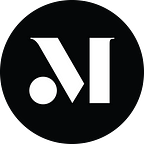Design Futures: March 2021
Education used to set the pace for industry. Universities were hallowed grounds for scholars to experiment with world changing ideas and inventions. Along the line the tables turned — with industry innovations largely outrunning university ones. Graduating students began entering the workforce with inadequate real-world skills, lacking experience collaborating with groups and communities in ways that create impact, and missing the kind of curiosity of spirit that gives us a horizon to strive for.
Throughout history, major changes have fueled innovation — from the printing press to the automobile to globalization to pandemics. Change forces us to make room for new ways of being and doing, seeing and making. And we’re long past the time for change in our approach to education.
A few bold institutions are pushing ahead, incorporating technology but not becoming beholden to it. They are creating kinesthetic and auditory experiences that welcome different learning styles, and offering alternative approaches to degrees that can lead to real-world training. But many are stuck in an outdated model, adapting to digital learning out of necessity, but not going further than absolutely necessary.
The team at Modernist asked ourselves, “How could it look different? How could we shape learning to include different paths to well-paying jobs and hands-on experiences that nurture emotional-intelligence? How could we design gateways to financial success — with curriculum that actively addresses diversity in learning styles, accessibility, and socio-economic inequity?”
This month and next we will be sharing our explorations with you. You’ll see articles, perspectives and speculative futures that explore learning as adults — both in our careers and in higher education. Whether future solutions look like these or not, one thing is clear — a combination of mentorship and intentionally created, human-centered technology are a must.
Read the Future of University Learning and stay tuned for the Future of Adult Education in the workplace in April!
“The delicate balance of mentoring someone is not creating them in your own image, but giving them the opportunity to create themselves.” — Steven Spielberg
More Videos & Articles from the Future of Education
"Why Design?" Fireside Chats
We kicked off our new “Why Design?” Fireside Chat series in February! In these one-on-one video conversations with design, technology, and business leaders, we’re discussing how design impacts their industry—and the world—as well as opportunities to evolve the world of learning, personal and professional stories, and emerging trends.
CURRENT EPISODES:
- Allan Chochinov, Chair and Co-Founder of the Master of Fine Arts in Products of Design Program at New York's School of Visual Arts (SVA) and a Partner at Core77
- Raphael Arar, Senior Design Manager at Khan Academy and Lecturer at San Jose State University, and formerly a designer and researcher at IBM
- Austin Dannhaus, a Partner at Friday—a multidisciplinary consulting firm that partners with mission-driven companies, non-profits, and schools to reimagine their work, tell their story & expand their impact
COMING SOON:
- Jonathan Lau, Chief Learner Officer & Co-Founder at InStride, a leading provider of strategic enterprise education
- Dr. Stacy Landreth Grau - Professor of the Entrepreneurship & Innovation Practice, College Diversity Advocate, and Director for Idea Factory at TCU, Co-Founder of HCO Lab & the Board President for CoAct in Fort Worth
The Future of Education: Hands-on-Homeschool
One of the key takeaways for education this year is that virtual learning, quality education, and career-readiness don’t need to be mutually exclusive. We were inspired to explore some of the future possibilities using an enriched at-home, AI-based, virtual learning curriculum. In the relatively near future, parents and students could have a dramatically different experience of education outside of the classroom, with or without a pandemic.
Read the full story >
Guest Blog: Training New Leaders, Rewiring Old Habits
We love sharing new perspectives from talented industry leaders. Meet Suzi Sosa, education expert, CEO, and co-founder of Verb, an adult learning platform that teaches “whole person development for the whole team.” Suzi shared some of her wisdom on how to rethink leadership training models to focus on curiosity, diversity, and empathy rather than just skills.
How I Teach
"A lot of things I've learned in my 15+ years as a design educator can help make the path a little easier for adjuncts, tenured professors, corporate educators, and design facilitators—and this knowledge can help improve the quality of education in a broad sense.” Modernist COO Jon Kolko talks about why he started a new kind of school and how to apply design thinking and design strategy to curriculum development in all types of programs.
Finding Inspiration
Our team’s shortlist of what we’re reading, listening to, and learning from.
“The Emotional Resilience in Leadership Report”
Burnout and resilience in leadership isn’t often discussed. Jan Chipchase (Studio D) and Jonny Miller share a visceral and raw is a candid reflection on a taboo subject.
Read it now >
They published a great Emotional Resilience wiki, too!
Explore it here >
When Tech Comes Calling
“Disruption is a theodicy of hypercapitalism.” Professor Adrian Daub investigates the language used to explain and justify Silicon Valley's world-altering innovation, arguing that the economic upheavals that start there are “made plausible and made to seem inevitable” because of marketing rather than consumer needs.
Read the book >
Ted Lasso
This Apple TV+ show surprised us. It sounded stereotypical and instead turned out to be a beautiful theory of change on leadership.
Watch now >
The Stoic Challenge
When we think about stoics it’s usually the strong silent types that fill a vast array of cold stereotypes. William Irving helps provide tools for resilience in the face of adversity while maintaining reflective humanity.
Read the book >
Thank you for joining us on this month’s Design Futures journey. Let’s keep imagining what the future can be.
Take a look around our website to learn more and get in touch.
— Modernist Studio
